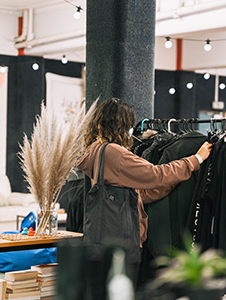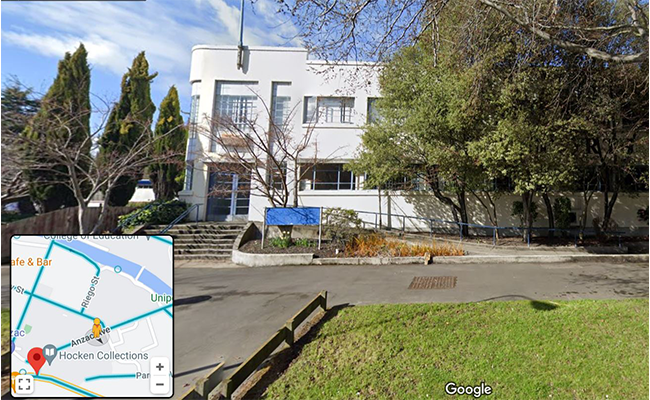
A thrift shop opened on the Dunedin campus will also be used as a 'repair café, refilling station, and space for workshops.
While Te Oraka is primarily for students, staff are welcome too.
The shop mostly contains clothes but also has accessories, office chairs, desks, tables, kitchenware, and bedding, Sustainability Office Kaitakawaenga/Team Leader Engagement Jes Triscott says.
The overall aim is to minimise waste, so the shop at 96 Anzac Avenue (the former Unipol gym), includes an area where students can refill their dishwashing liquid, body wash and laundry liquid.
 While Te Oraka is primarily for students, staff are welcome too.
While Te Oraka is primarily for students, staff are welcome too.
'Repair café' events would involve helping students fix anything from clothes and appliances to laptops and tablets – with coffee and biscuits provided.
Workshops would be held in the space as well and could include showing students how to compost and make food waste-free recipes – the focus will be on “learning skills to make sure things survive a lot longer”, she says.
Open on Tuesdays and Thursdays between 11am and 1pm, Te Oraka is operated by the Sustainability Office.
The idea for the thrift shop came from students' dependence on skips put regularly around the North Dunedin flatting area and events like the annual Drop for Good – part of our University's commitment to the Sophia Charter along with the North Dunedin Street Clean Up – where students drop off clothing, furniture, and household items that opportunity shops have turned down so other students can buy them, Jes says.
Students clearly needed more support during the year so after considering their needs, Te Oraka has been created as a flexible space and the name gifted by Office of Māori Development loosely translates as 'meeting all your needs (spiritually and physically)'.
All money made at Te Oraka goes back into the space, to not only showcase a circular economy in action – which keeps products in use as long as possible by repairing, reusing, and refurbishing – but to support more waste minimisation mahi, Jes says.
Anyone who would like more information, can contact sustainability@otago.ac.nz

